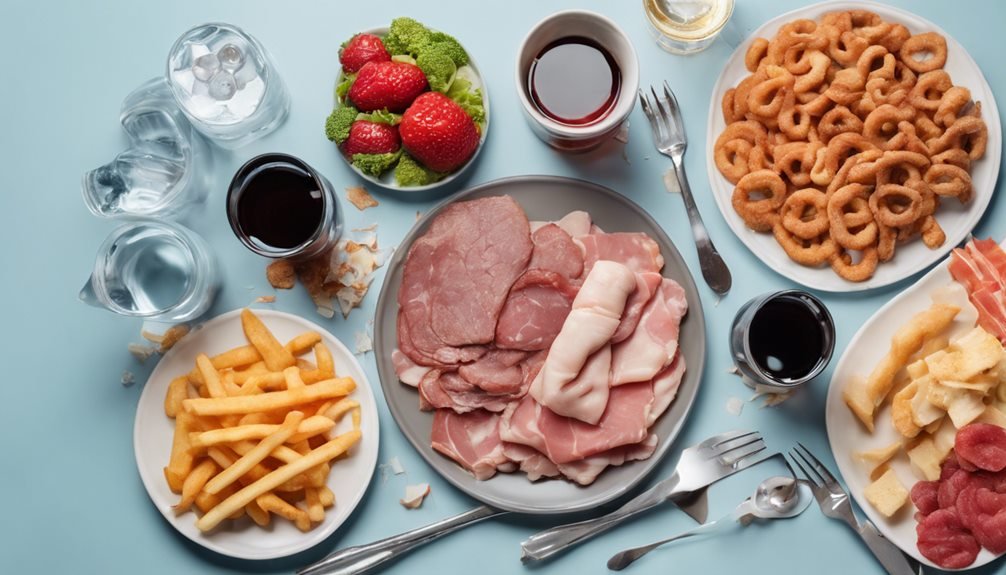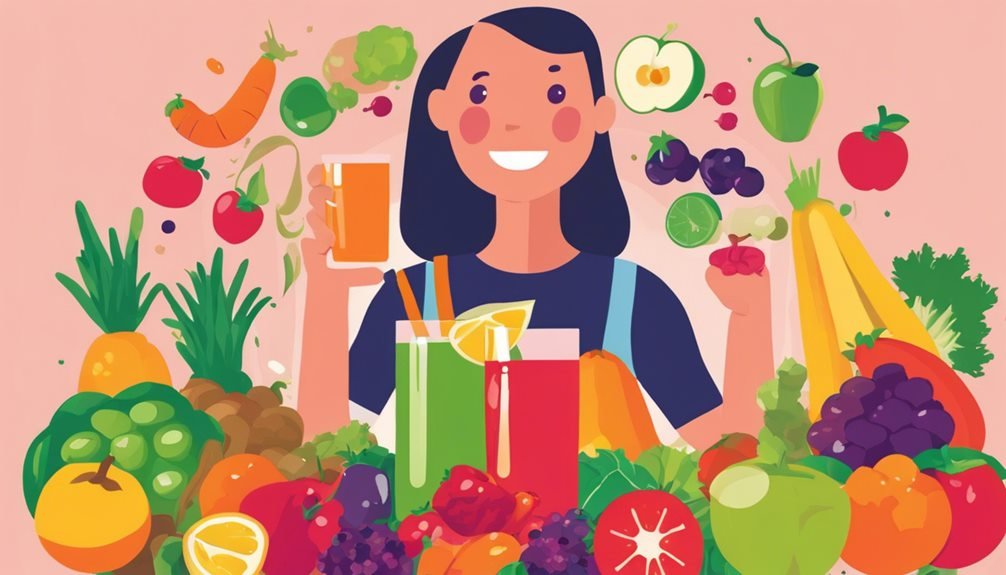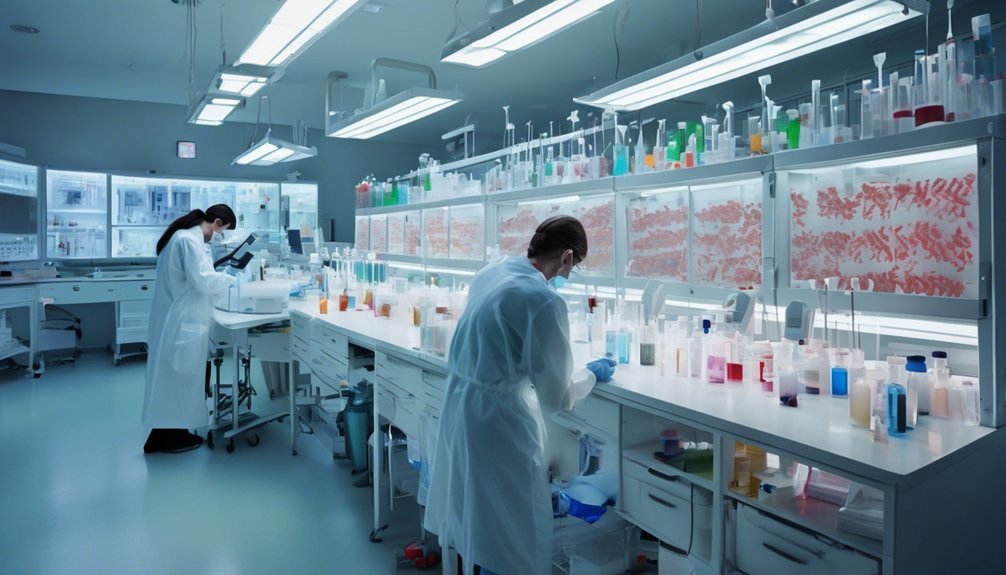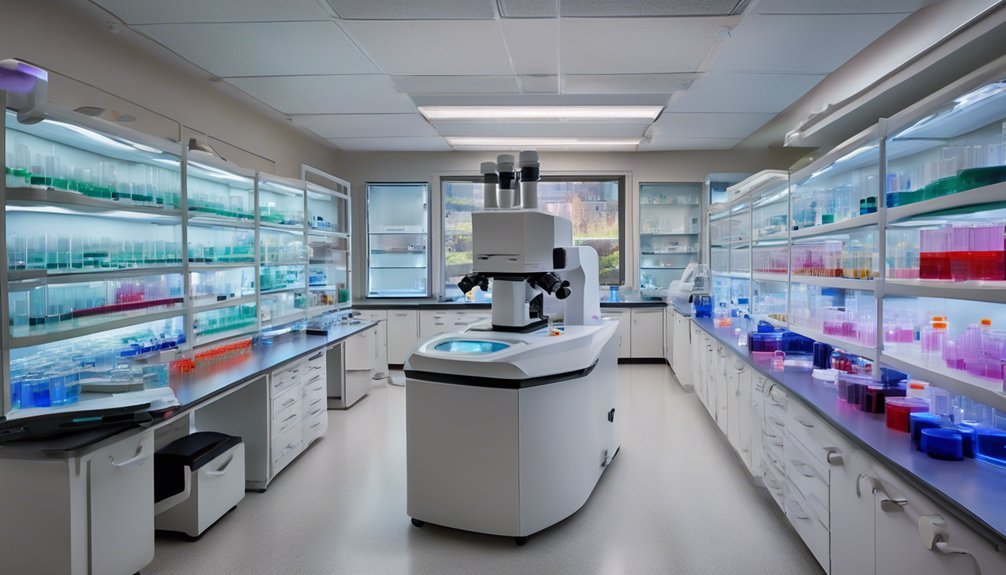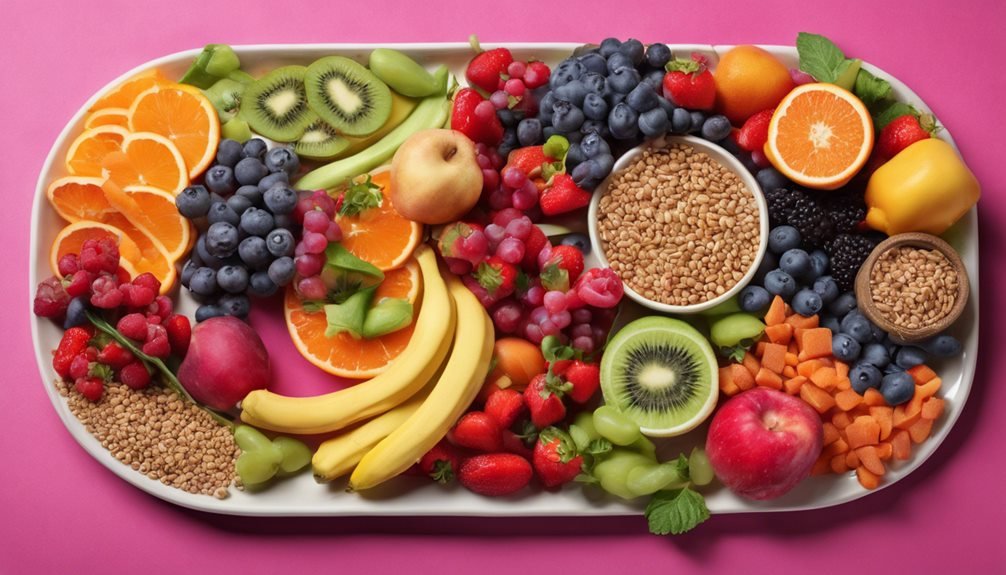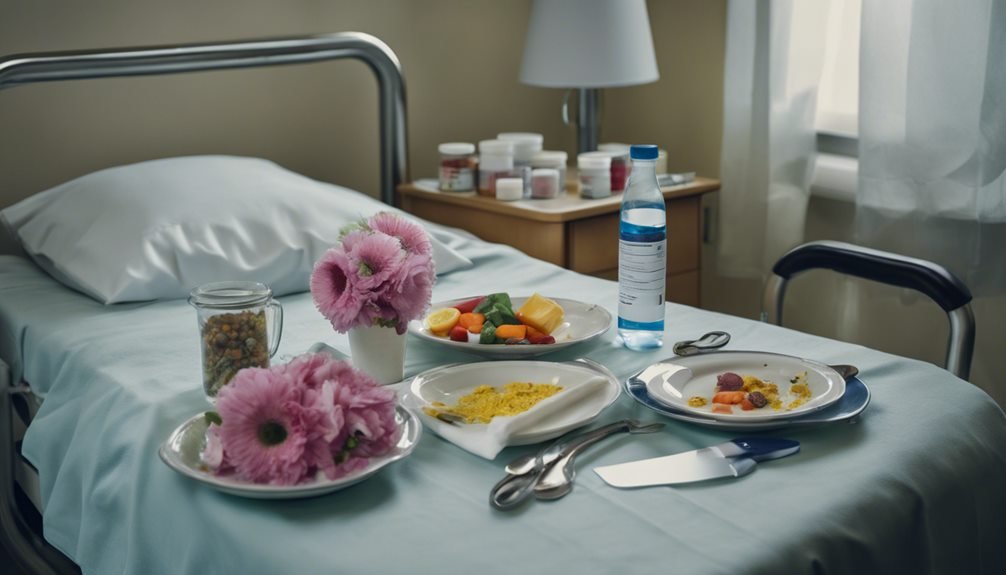When undergoing cancer treatment, steering clear of certain foods can play a crucial role in supporting your health and well-being. Some foods may not only exacerbate side effects but also hinder your body's ability to heal. By being mindful of what you eat, you can positively impact your treatment journey and overall quality of life. Remember, the right dietary choices can make a significant difference in how you feel and cope during this challenging time.
Key Takeaways
- Avoid acidic foods to reduce side effects and support immune system with alkaline options.
- Steer clear of processed meats due to nitrates, high fat, and salt content.
- Limit sugary treats and opt for natural sweeteners like fruits or honey.
- Choose low-fat dairy over high-fat options for easier digestion.
- Skip caffeinated beverages and fried foods to promote hydration and reduce inflammation.
Acidic Foods
When undergoing cancer treatment, it's important to avoid acidic foods as they can exacerbate certain side effects and discomfort you may already be experiencing. To support your immune system and promote overall well-being, consider incorporating an alkaline diet that focuses on balancing pH levels in your body. By avoiding acidic foods and opting for alkaline choices like leafy greens, nuts, and seeds, you can help maintain proper pH balance and support your digestive health during this challenging time.
Acidic foods can sometimes trigger digestive issues and inflammation, making it essential to be mindful of what you consume. By choosing foods that are gentle on your system, you can alleviate some of the discomfort associated with cancer treatment.
Additionally, maintaining a balanced pH through an alkaline diet can assist in reducing acidity levels in the body, potentially easing certain side effects.
Processed Meats
To further support your well-being during cancer treatment, it's important to be mindful of the impact of processed meats on your health. Processed meats often contain high levels of nitrates, which are additives linked to health concerns. Nitrates are known to form nitrosamines in the body, which are compounds that can be harmful, especially during cancer treatment. These substances may interfere with your body's natural processes and potentially exacerbate the effects of the treatment.
Moreover, the digestive impact of processed meats can be significant. They're often high in fat and salt, which can be hard on your digestive system, leading to discomfort and potential complications. During this crucial time, it's essential to prioritize foods that are gentle on your body and promote healing.
Choosing whole, unprocessed foods over processed meats can help you maintain your strength and well-being throughout your cancer treatment. By making thoughtful choices about what you eat, you can support your body in its healing process and improve your overall health outcomes.
Sugary Treats

Indulging in sugary treats may seem tempting, especially during challenging times like cancer treatment. However, it's important to be mindful of the impact of sugar on your health. While sugar substitutes may offer a lower-calorie alternative, some research suggests they may not be the best choice during cancer treatment.
Instead of reaching for traditional sugary treats, consider exploring dessert alternatives that are healthier and equally satisfying. Opt for fresh fruits like berries or a fruit salad to satisfy your sweet tooth naturally.
You could also try making homemade treats using natural sweeteners like honey or maple syrup in moderation.
High-Fat Dairy
Navigating your dietary choices during cancer treatment can be overwhelming, and one category to be cautious of is high-fat dairy products. Opting for low-fat alternatives to high-fat dairy can be beneficial during this time. High-fat dairy products like whole milk, full-fat yogurt, and certain cheeses can be harder for your body to digest and may cause discomfort. Choosing low-fat options such as skim milk, low-fat yogurt, or reduced-fat cheese can still provide you with the essential nutrients found in dairy without the added fat content.
If you're looking for dairy alternatives, there are plenty of options available. Plant-based milk alternatives like almond, soy, or oat milk can be great substitutes for cow's milk. Additionally, there are dairy-free yogurts and cheeses made from ingredients like coconut, almonds, or soy. These alternatives can be a tasty and nutritious way to enjoy dairy-like products without the high-fat content. Making these simple swaps can help support your overall health and well-being during cancer treatment.
Caffeinated Beverages
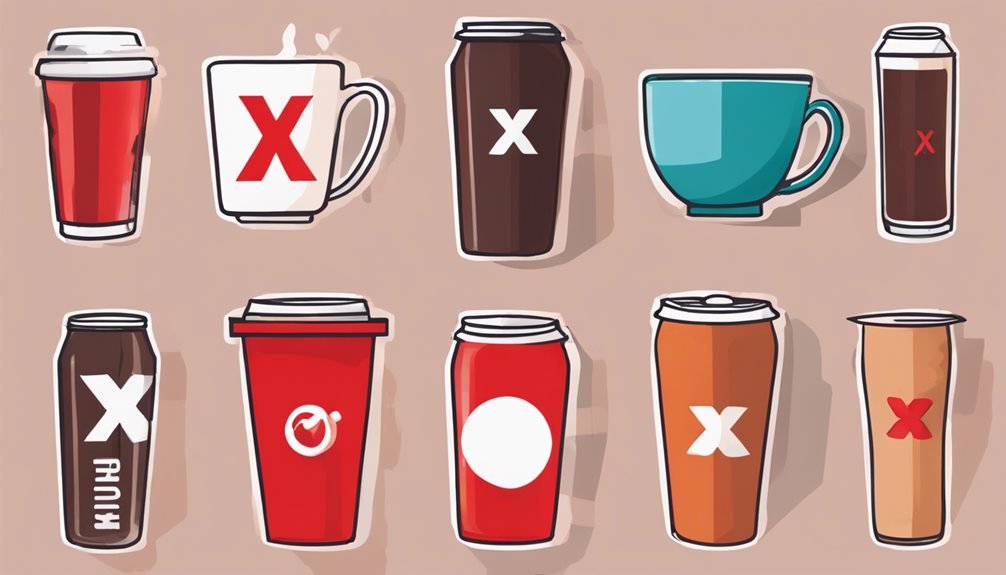
When facing the challenges of cancer treatment, being mindful of your beverage choices is important. Caffeinated beverages like coffee, soda, energy drinks, and tea can have varying effects on your body during this time. While these drinks can provide a temporary energy boost, they may also lead to dehydration and interfere with your sleep patterns, which are crucial for your recovery.
Coffee and energy drinks, for instance, might cause increased heart rate and anxiety in some individuals, making it harder to relax and rest.
Soda, on the other hand, often contains high amounts of sugar, which can contribute to inflammation and weaken your immune system.
Tea, although generally considered healthier, can also have high caffeine content that may affect your hydration levels.
During cancer treatment, it's important to stay hydrated and nourished. Opting for decaffeinated versions of these beverages or choosing herbal teas can be a better choice to support your overall well-being. Remember, small changes in your beverage choices can make a big difference in how you feel throughout your treatment journey.
Spicy Foods
If you have been enjoying spicy foods but are currently undergoing cancer treatment, it may be beneficial to rethink your choices. While taste preferences vary, spicy foods can often lead to digestive issues that might be uncomfortable during this sensitive time. Cancer treatments can already be tough on your digestive system, and consuming spicy foods could exacerbate these issues.
Opting for milder alternatives can help you maintain a more balanced diet while minimizing potential gastrointestinal discomfort. Consider exploring flavorful herbs and mild seasonings to enhance your meals without the intense heat of spicy ingredients. This adjustment can still provide variety and enjoyment in your meals without causing unnecessary distress.
Alcohol
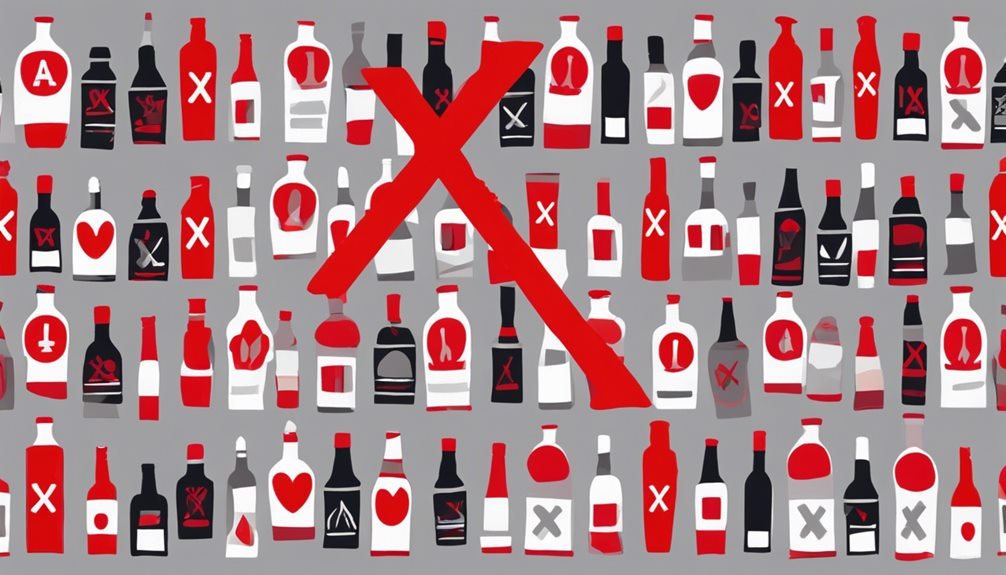
Considering the impact of your diet on your well-being during cancer treatment, it's important to also pay attention to your alcohol consumption. Alcohol can have negative effects on your body, particularly when undergoing cancer treatment. It's advisable to limit or avoid alcohol altogether during this time.
Alcohol consumption can interfere with the effectiveness of certain cancer treatments and medications, making it harder for your body to fight off the disease. Additionally, alcohol can weaken your immune system, leaving you more susceptible to infections and other complications.
During cancer treatment, your body needs all the support it can get to combat the illness and heal properly. By reducing or eliminating alcohol from your diet, you're giving your body the best chance to recover and respond positively to treatment.
If you find it challenging to cut out alcohol completely, consider speaking with your healthcare provider for guidance and support. They can help you make informed decisions about your alcohol consumption during this critical time. Your health and well-being are top priorities, so let's work together to give your body the best chance at fighting cancer effectively.
Raw Seafood
Raw seafood, such as sushi and oysters, may have been a favorite delicacy before your cancer diagnosis, but it's crucial to be cautious about consuming it during your treatment. While these dishes are delicious, they pose risks to your weakened immune system. Here are some key points to consider when it comes to sushi safety and shellfish risks:
| Sushi Safety | Shellfish Risks |
|---|---|
| Choose cooked sushi | Be cautious of allergies |
| Avoid raw fish | Watch out for toxins |
| Opt for reputable restaurants | Check for freshness |
| Consider vegetarian sushi options | Be mindful of contamination |
| Ask about ingredient sources | Be aware of mercury levels |
During this challenging time, your health is of utmost importance. By being mindful of the potential dangers associated with raw seafood, you are taking important steps to protect yourself during your cancer treatment. If you have any concerns or questions, don't hesitate to consult your healthcare provider for personalized advice.
Artificial Sweeteners

When navigating through your cancer treatment journey, being mindful of the impact of artificial sweeteners on your health is crucial. Artificial sweeteners may pose health risks, especially during cancer treatment. Some studies suggest that certain artificial sweeteners could potentially affect your gut microbiota and may even have carcinogenic properties. To prioritize your well-being during this challenging time, it's advisable to steer clear of products containing artificial sweeteners.
Instead of artificial sweeteners, consider opting for natural sweeteners like honey, maple syrup, or stevia. These alternatives can provide a touch of sweetness without the potential health risks associated with artificial sweeteners.
Fried Foods
Navigating your way through cancer treatment involves making mindful choices about the foods you consume. When it comes to fried foods, it's important to be aware of the cooking methods used and consider dietary modifications to support your health during this challenging time.
Fried foods are often cooked in oils that are high in unhealthy fats, which can contribute to inflammation in the body. Opting for cooking methods like baking, grilling, or steaming can help reduce the amount of unhealthy fats in your diet. By choosing these alternative cooking methods, you can still enjoy delicious meals without compromising your health.
Dietary modifications play a crucial role in managing your well-being during cancer treatment. Avoiding fried foods can help lower your intake of saturated and trans fats, which are linked to increased health risks. Instead, focus on incorporating whole, nutrient-rich foods into your diet to support your body's healing process. Making these small changes can have a positive impact on your overall health and well-being as you undergo cancer treatment.
Excessive Salt
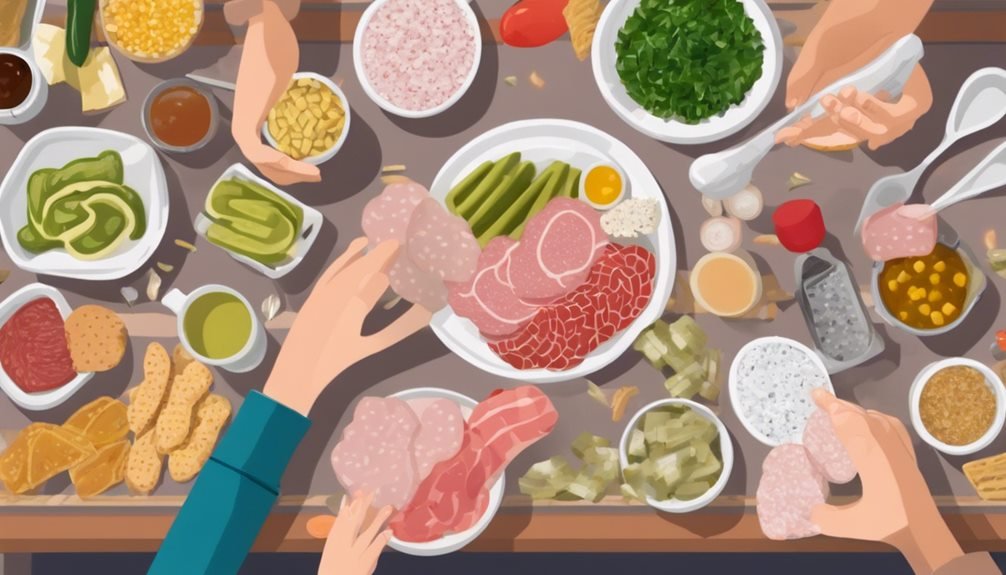
During cancer treatment, being mindful of your salt intake is essential for supporting your overall health. Excessive salt can lead to water retention, which may cause discomfort and affect your hydration levels. To help you maintain proper balance, here are some hydration tips to keep in mind:
Hydration Tips:
| Hydration Tips | Description |
|---|---|
| Drink plenty of water | Stay hydrated by sipping water throughout the day. |
| Include hydrating foods | Consume fruits and vegetables with high water content. |
| Limit caffeine and alcohol | These can dehydrate you, so moderation is key. |
Additionally, opting for low salt recipes can be beneficial during this time. These recipes can help you control your salt intake while still enjoying flavorful meals. Remember, your well-being is a priority, and making small changes like reducing salt can positively impact your health during cancer treatment.
Unpasteurized Products
As you focus on maintaining your health during cancer treatment, it's important to steer clear of unpasteurized products. These items can pose risks due to harmful bacteria that may be present in raw forms. Here are some reasons to avoid unpasteurized products:
- Raw Milk: Contains harmful bacteria that could compromise your immune system.
- Uncooked Cheese: Potential risks of foodborne illnesses that might be detrimental to your health.
- Fresh Juices: Unpasteurized juices may contain harmful pathogens that can be dangerous for your weakened immune system.
- Homemade Ice Cream: Unpasteurized ingredients in homemade ice cream can harbor harmful bacteria.
- Raw Eggs: Avoid consuming raw eggs as they can contain Salmonella, which is a significant health risk during cancer treatment.
Frequently Asked Questions
Can I Have Herbal Supplements During Cancer Treatment?
You should consult your healthcare team before taking any herbal supplements during cancer treatment. It's essential to understand dietary restrictions and supplement safety to ensure you're not putting yourself at risk. Your medical team can provide guidance tailored to your specific situation, helping you make informed choices that support your overall well-being.
Are There Any Specific Fruits That Should Be Avoided?
You might want to be cautious with some fruits during this time. Citrus fruits can sometimes be too acidic for you. Also, high-sugar fruits may not be the best choice. It's important to nourish your body with gentle options.
Consider talking to your healthcare team about suitable fruits for you. They can provide personalized advice to help you make the best choices for your health during treatment.
Should I Limit My Intake of Probiotic Foods?
You should consider limiting your intake of probiotic supplements during cancer treatment. While these can be beneficial for gut health in general, they may have varying impacts on individuals undergoing treatment.
It's essential to consult your healthcare provider to determine if probiotics are suitable for your specific situation. They can provide guidance on the best approach to support your gut health while receiving treatment.
Your well-being is a top priority, so make sure to seek professional advice.
Can I Eat Sushi if It's Made With Cooked Seafood?
Yes, you can enjoy sushi made with cooked seafood during your cancer treatment. Opting for cooked seafood in your sushi can reduce the risk associated with raw fish. While raw fish in sushi offers nutritional benefits, cooked seafood is a safer option to prevent any foodborne illnesses.
You can still savor the flavors of sushi while being mindful of your dietary choices to support your overall health during this time.
Is It Safe to Consume Fermented Foods Like Kimchi?
Yes, consuming fermented foods like kimchi can be risky during cancer treatment. Kimchi and other fermented foods may have side effects due to their high probiotic content. These side effects could potentially worsen existing symptoms or interact with certain treatments.
It's crucial to consult your healthcare provider before adding fermented drinks or foods to your diet. They can provide personalized advice to ensure your safety and well-being throughout your cancer treatment journey.
Conclusion
As you navigate through cancer treatment, remember to steer clear of acidic foods, processed meats, sugary treats, high-fat dairy, caffeinated beverages, artificial sweeteners, fried foods, excessive salt, and unpasteurized products. By avoiding these culprits, you can help support your body's healing journey. Just like a ship sailing through rough waters, choosing gentle, whole foods can be your compass to smoother seas ahead. Stay strong, stay nourished, and stay focused on your well-being.
